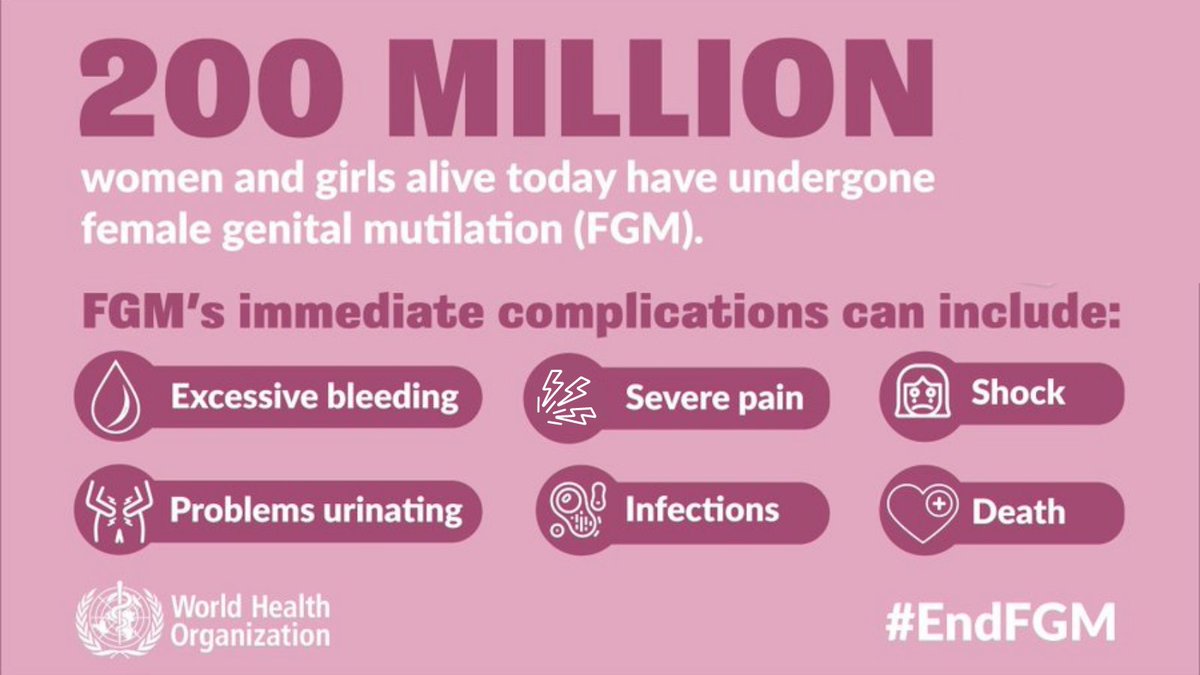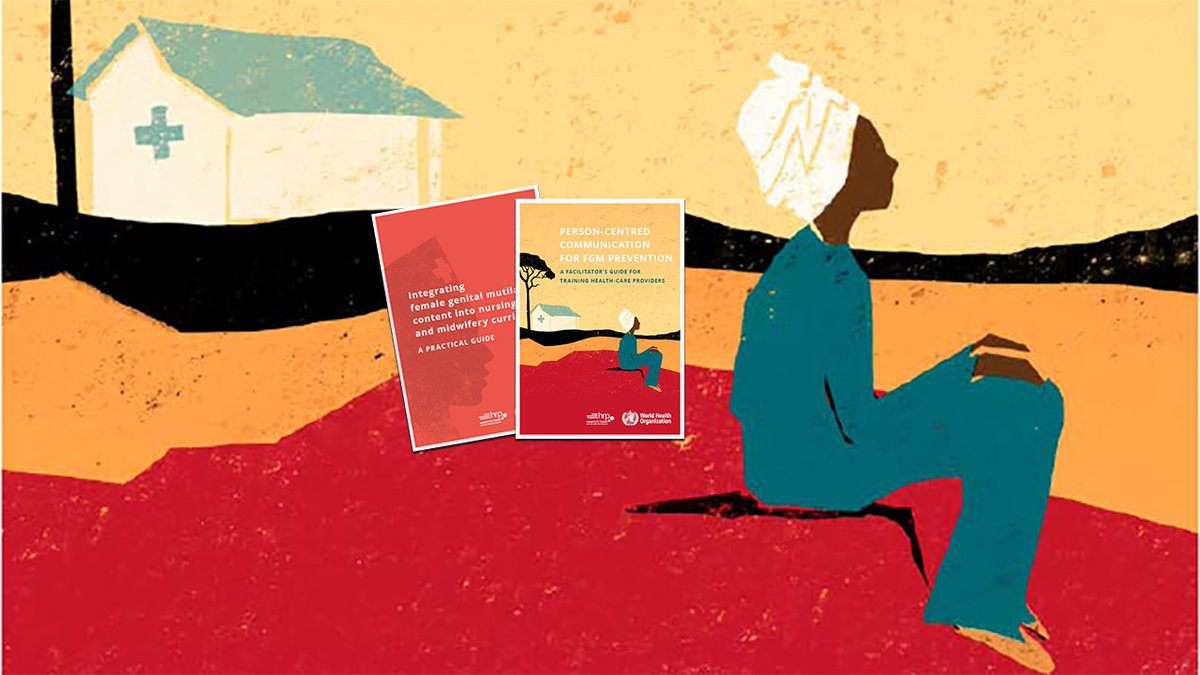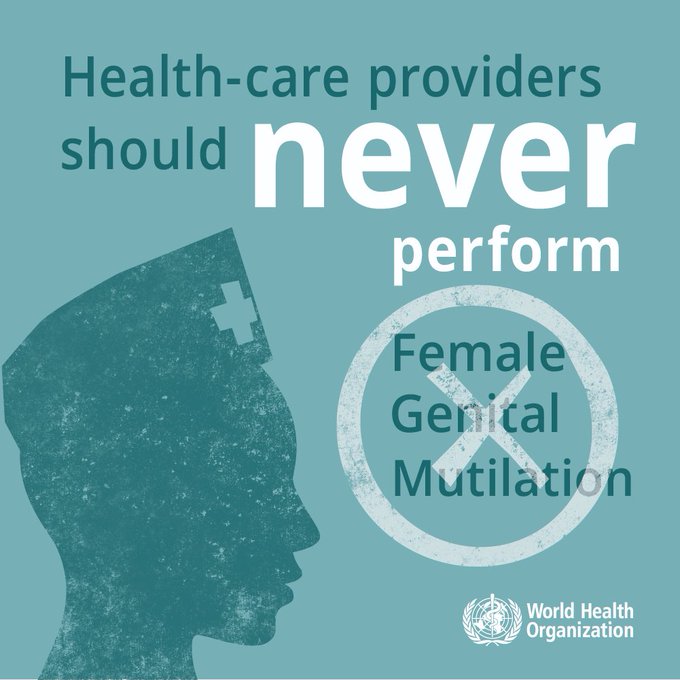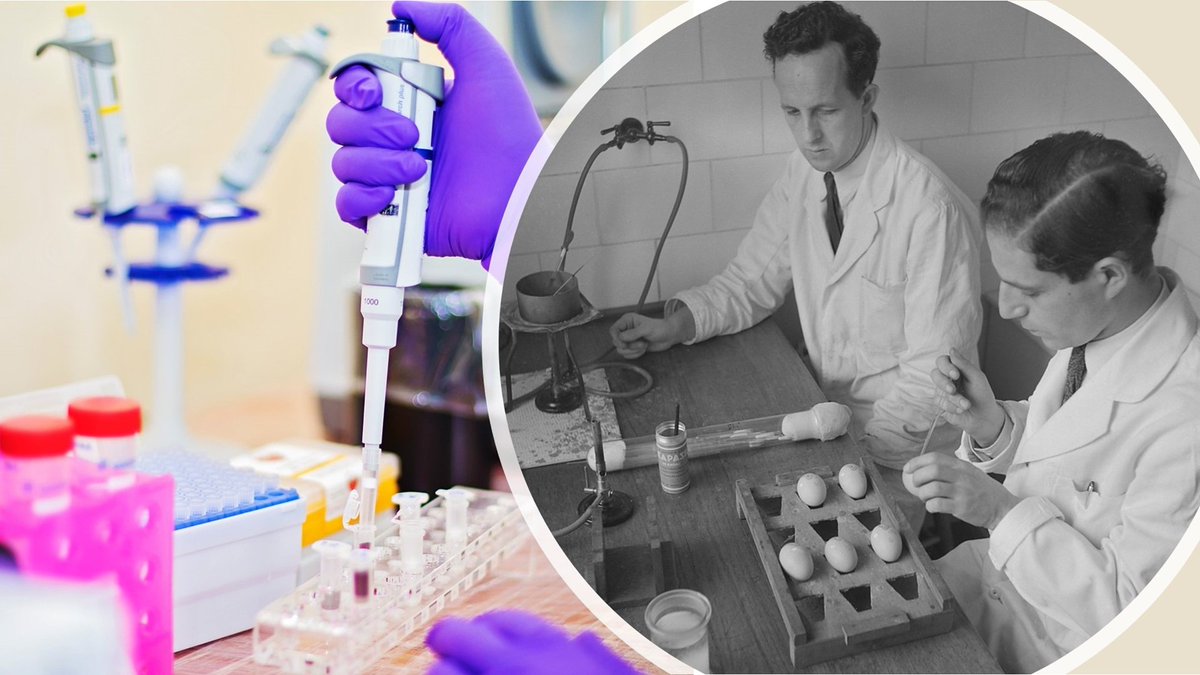
It's the Int. Day of Zero Tolerance for Female Genital Mutilation (FGM).
Over 2⃣0⃣0⃣ MILLION women & girls alive today have suffered FGM. FGM has no health benefits & can cause life-long suffering.
Let's #EndFGM!
👉bit.ly/2Tunu0B
Over 2⃣0⃣0⃣ MILLION women & girls alive today have suffered FGM. FGM has no health benefits & can cause life-long suffering.
Let's #EndFGM!
👉bit.ly/2Tunu0B
Women & girls living with female genital mutilation face serious threats to their health & well-being.
These include:
🔴 infections
🔴 bleeding
🔴 psychological trauma
🔴 chronic health conditions that can occur throughout life
🔴 death
Let's #EndFGM
👉bit.ly/2Tunu0B
These include:
🔴 infections
🔴 bleeding
🔴 psychological trauma
🔴 chronic health conditions that can occur throughout life
🔴 death
Let's #EndFGM
👉bit.ly/2Tunu0B

Female genital mutilation (FGM) is internationally recognized as a #HumanRights violation of girls and women.
WHO is opposed to all types of FGM. It should never be performed.
Let's #EndFGM
👉bit.ly/2Tunu0B
WHO is opposed to all types of FGM. It should never be performed.
Let's #EndFGM
👉bit.ly/2Tunu0B

FGM causes economic as well as physical & emotional harms.
Treatment of the health complications of FGM in 27 high prevalence countries is estimated to cost 1.4 billion USD per year - projected to ↗️ to 2.3 billion USD by 2047 if we do not #EndFGM.
👉bit.ly/2Tunu0B
Treatment of the health complications of FGM in 27 high prevalence countries is estimated to cost 1.4 billion USD per year - projected to ↗️ to 2.3 billion USD by 2047 if we do not #EndFGM.
👉bit.ly/2Tunu0B

2 🆕training tools have been launched to help health workers give the best quality care to girls & women who have been subjected to female genital mutilation – & to support 🌐 efforts to end this harmful practice & #HumanRights violation.
👉 bit.ly/3sfoTuK
#EndFGM
👉 bit.ly/3sfoTuK
#EndFGM

#HealthWorkers need to know how to treat the health conditions that may affect women & girls living with female genital mutilation.
They can play a crucial role to help #EndFGM.
👉bit.ly/2Tunu0B
They can play a crucial role to help #EndFGM.
👉bit.ly/2Tunu0B

An inspiring story about health workers in Somalia 🇸🇴
Empowered with cultural, medical and psychosocial knowledge, they are helping to #EndFGM in their communities
⬇️
bit.ly/3axIRYS
Empowered with cultural, medical and psychosocial knowledge, they are helping to #EndFGM in their communities
⬇️
bit.ly/3axIRYS
Person-centred communication is a 🔑 component of quality healthcare and #HumanRights. It can help #EndFGM and ensure effective care for survivors.
👉 bit.ly/3axIRYS
👉 bit.ly/3axIRYS

🧕🏽 & 👧🏾 living with female genital mutilation can face serious & lifelong threats to their health & well-being, incl.:
♦️ mental health disorders
♦️ recurrent infections
♦️ psychological trauma
♦️ complications during childbirth
♦️ chronic health conditions
Let's #EndFGM
♦️ mental health disorders
♦️ recurrent infections
♦️ psychological trauma
♦️ complications during childbirth
♦️ chronic health conditions
Let's #EndFGM

Female Genital Mutilation must NEVER be performed. WHO strongly urges health professionals not to perform such procedures. #EndFGM
👉bit.ly/2Tunu0B
👉bit.ly/2Tunu0B

Research on female genital mutilation has been 🔑 in informing global guidance on how to #EndFGM. Good quality research can only be ensured when the #HumanRights of all research participants are safeguarded & respected.
🆕guidance for ethical research:
👉 bit.ly/2Tunu0B
🆕guidance for ethical research:
👉 bit.ly/2Tunu0B

• • •
Missing some Tweet in this thread? You can try to
force a refresh














